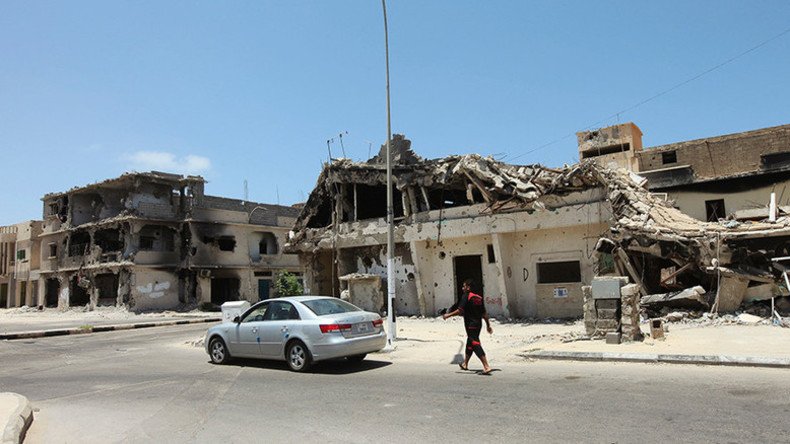'Power vacuum' in Libya plays into ISIS hands

Many ISIS fighters are relocating to Libya where there is a huge power vacuum – the result of the intervention of the Pentagon and NATO, says the editor of the Pan-African news wire Abayomi Azikiwe.
After ISIS lost positions in Syria and Iraq, it is planning to relocate its forces to Libya and turn Sirte, on Libya’s Mediterranean coast into another Raqqa, reports The Wall Street Journal.
RT: How likely is that ISIS will turn Sirte into another Raqqa? Are they relocating?
Abayomi Azikiwe: They are attempting to do this. They have been hurt severely as a result of the Russian air intervention in Syria and therefore many of their fighters are relocating to Libya where there is a huge power vacuum. What has happened in Libya is a direct result of the intervention of the Pentagon and NATO as is in the same situation in Syria. So, therefore they are looking for new territories that have open areas where they can go in and in fact take over territory and exploit and utilize the people in the same fashion that they have done in other geopolitical areas where they are operating. Of course, it has a lot to do with the fact that the intervention in Syria as well as in Libya provides a rationale for the West, to the Pentagon, to NATO to intervene - to use air power, to use military advisors and proxy armies to further the destabilization process that is taking place throughout the North Africa as well as the Middle East.
RT: Why is Sirte an important gain for Islamic State? How are they benefiting from it?
AA: The city, which was the home town of the former leader colonel Muammar Gaddafi who was assassinated right outside Sirte on October, 20 of the 2011, was essentially destroyed by the Pentagon and NATO during the 2011 war of regime change. So, in that city the basic infrastructure has been broken down. There is a huge presence of poverty as well as dislocation in the city and throughout the entire Western region of Libya. So, therefore the Islamic State which is well funded by elements within the Middle East, elements within NATO and they are able to step into these political situations and exploit and take advantage of the people who have been already dislocated as a result of this imperialist war that has been waged over the last decade and a half throughout the Middle East, Central Asia as well as Africa.
RT: Some experts believe the terrorists are shifting attention to drug trafficking following Russian airstrikes inflicting irreparable damage on the oil infrastructure. Do you think that’s what is really happening?
AA: It wouldn’t be surprising; the oil supply lines from Turkey into Syria have been severely disrupted as a result of the air campaign that has been carried out by the Russian air force. It’s quite obvious that Turkey and other states within the region have been funneling resources to ISIS, allowing ISIS forces to utilize their territory in order to cross over into Syria as well as into Iraq. Now, where the situation has changed, many of their camps have been dislocated and the lines of supply for the illegal marketing of oil through Turkey have been severely disrupted. So, therefore it is not surprising that ISIS would be involved in other illicit forms of revenue generation which they not necessarily have to rely on official banking channels even though they are doing that as well.
The statements, views and opinions expressed in this column are solely those of the author and do not necessarily represent those of RT.













